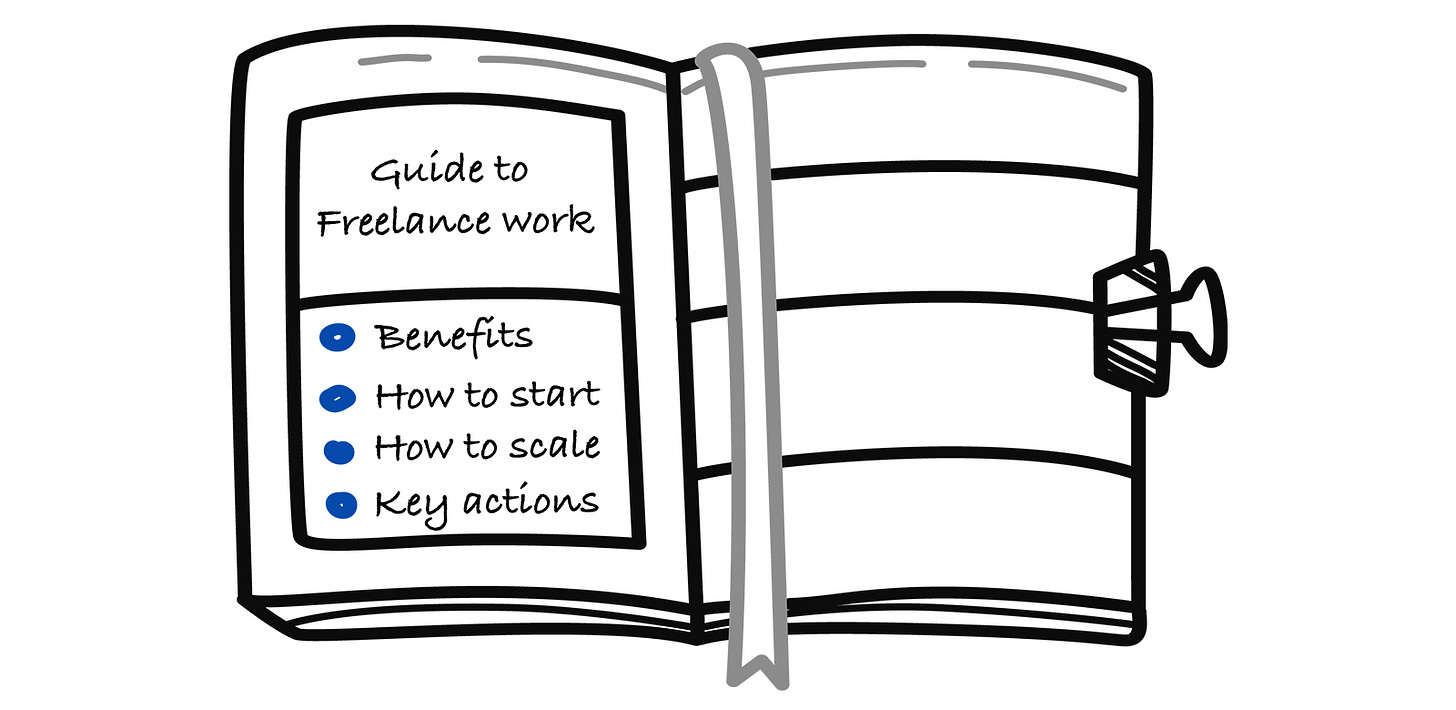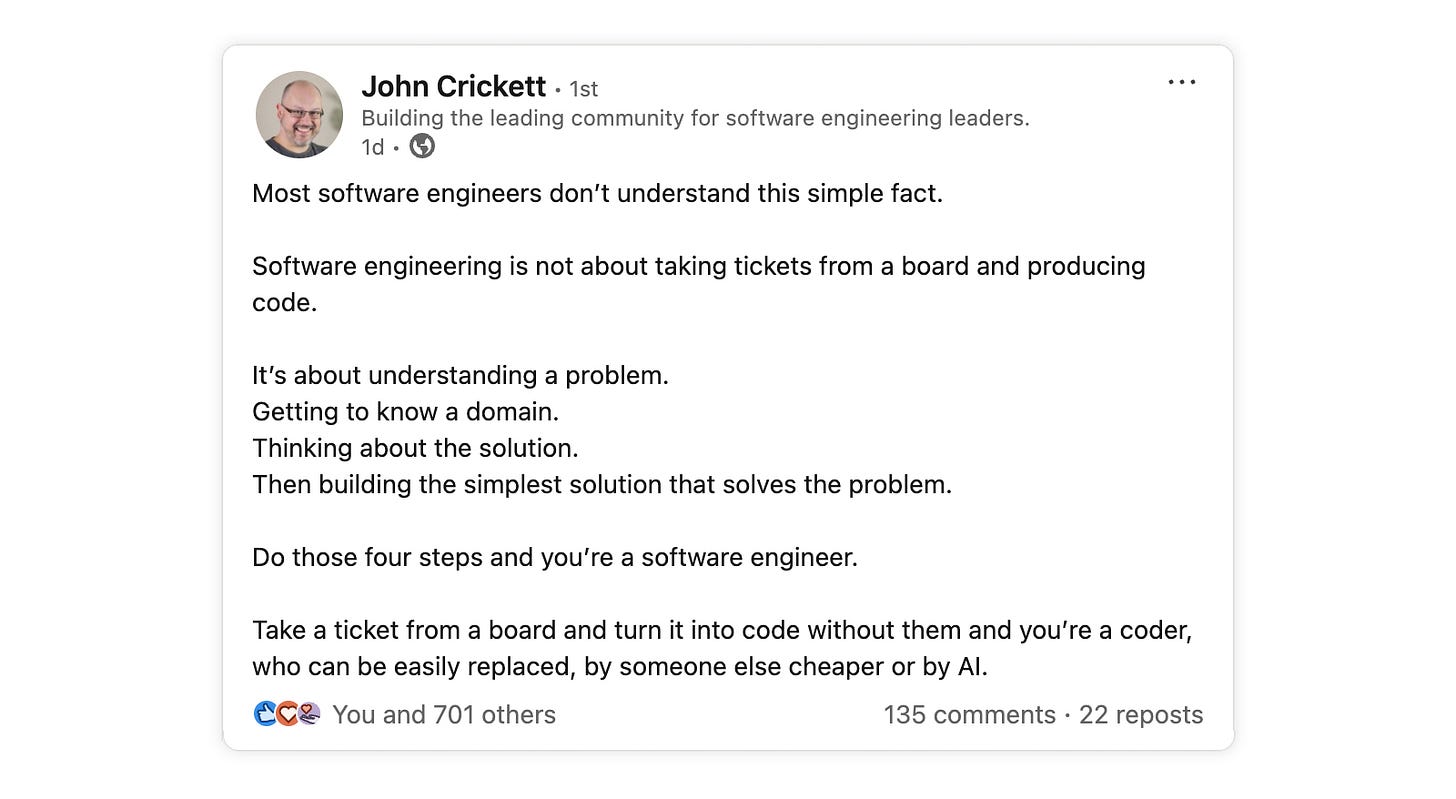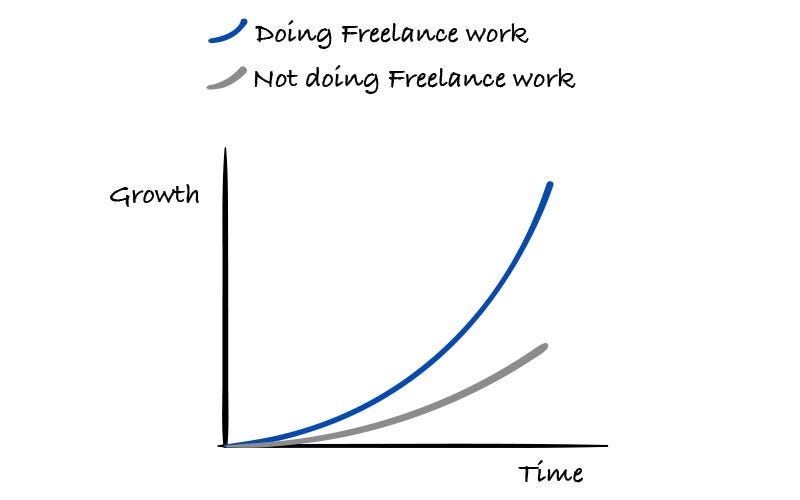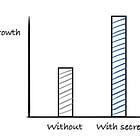Engineer's Guide to Freelance Work
Freelance work has been my secret to growth from engineer to CTO. Here is the guide to help you get started!
Intro
If you are a regular reader, you may have noticed that I mention freelance work a lot and how important it has been for the growth of my career.
I like to say that it has been my secret for the growth from engineer to CTO. I am estimating that my overall experience and knowledge is 2-3x broader than if I wouldn’t be doing freelance work.
And I am sure I wouldn’t be where I am right now without doing it.
In today’s article, I am sharing all about freelance work, how much it has helped me, what are different ways for you to start with it and how you can potentially scale it as well!
This is an article for paid subscribers, and here is the full index:
- What exactly is freelance work?
- How can freelance work help you level up in your career as an engineer?
- These are the skills I have developed while doing freelance work
🔒 How to start with freelance work
🔒 Start with free work first
🔒 Build up the foundation and templates
🔒 How to scale your freelance work and get more clients
🔒 Key (actionable) takeaways for you
🔒 Last words
Let’s get straight into it!
What exactly is freelance work?
To be very clear about what we are talking about, let’s define what exactly I mean by doing freelance work. This is my definition:
Freelance work is when you offer your skills or services and get hired by different clients to do specific jobs or projects.
This can be anything, for example:
Building a website, application, plugin, etc.
Being a coach or mentor,
Do consulting or advising for companies.
And it can be in any capacity, from short-term to long-term or also one-off. There are many options here, it’s a matter of your or your client’s preference.
How can freelance work help you level up in your career as an engineer?
What example I like to bring here is the difference between doing the same thing for 5 years versus doing different things for 5 years.
If you work for 5 years on the same thing, you may develop deep expertise in that particular field, but you lose out on developing broad knowledge and skills.
This approach may work out well in some specific cases, like you may develop deep expertise of a specific part of the system, which will automatically make you a go-to person inside a company.
But in most cases, it will backfire, as in order to get better and progress in your career, you need both breadth and depth. A lot of the problem-solving skills come from experience when solving different problems from various domains and specific cases.
And you never know when your specific deep knowledge might become obsolete → maybe the company is doing layoffs or there might be a new technology release and the knowledge you’ve built over the years becomes worthless.
So, that’s where freelance work comes into play. You develop a spectrum of very important skills and it also comes with monetary benefits along the way.
I really like what John Crickett posted recently:
And here is my comment:
You develop broad problem-solving skills while doing freelance work. Which is what we, as Software Engineers, need. We need to be great at solving problems, not just coding.
Let’s get to what kind of skills you develop when doing freelance work next.
These are the skills I have developed while doing freelance work
As I mentioned in the article where I shared my story growing from engineer to CTO, I quickly started doing freelance work while having a full-time role and I kept doing that for the course of my whole career.
I was able to get different experiences on various of different problems and grew my context and perspective widely from different experiences. Which has helped me a lot also with doing better in full-time roles.
And I did all kinds of different freelance work. I’ve built over 50 websites during the course of my whole career, many applications (in all different platforms, web, mobile and desktop as well), solo or in a team.
I also did a lot of coaching/mentoring sessions and consultations/advisings with many different companies, all of different sizes.
These are particular skills I have developed while doing freelance work.
By doing projects for clients I learned the importance of:
successful planning,
clear communication,
managing expectations.
And especially learned the importance of understanding the business side. It’s important to clearly understand that we as engineers are here to provide as much business value as possible.
By doing coaching and mentoring, I:
learned the importance of empathy,
learned how to properly help others,
cemented my knowledge on various different topics while helping others.
I was doing this even before I grew to my first managerial role. So this has helped me a lot when I first started managing others in my full-time role.
By doing consulting and advising, I:
grew my perspective,
learned about various different problems that companies were facing,
enhanced my creative problem-solving.
Seeing and understanding various problems that companies/projects have faced and advising solutions to those problems have been one of the biggest growth factors for me. Because of this alone, I was able to do my management roles a lot better.
To learn more, you can read the full article on how freelance work has been a secret to my growth from engineer to CTO here:
Now, let’s go into how you can start with freelance work.






